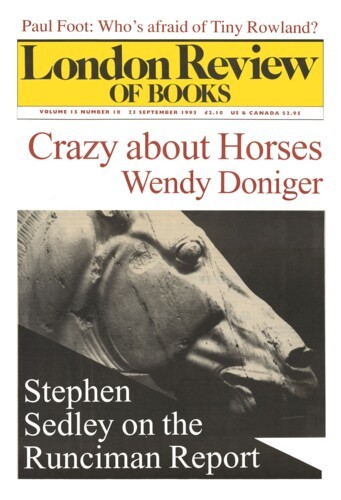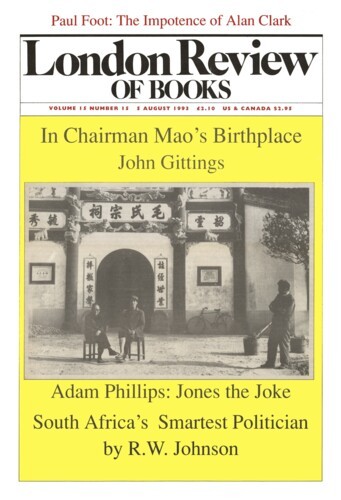Travels on the left
Paul Foot, 2 December 1993
In the 1929 General Election campaign, the Labour candidate for Aston, Birmingham issued the following leaflet:
£5 Reward!
DESPERATE TORIES WILD LIE.
Mr John Strachey writes: ‘It has come to my notice that Tory canvassers are making the outrageous statement that I am a foreigner. This is a most serious allegation which the Aston Tory Party, utterly beaten in political...





